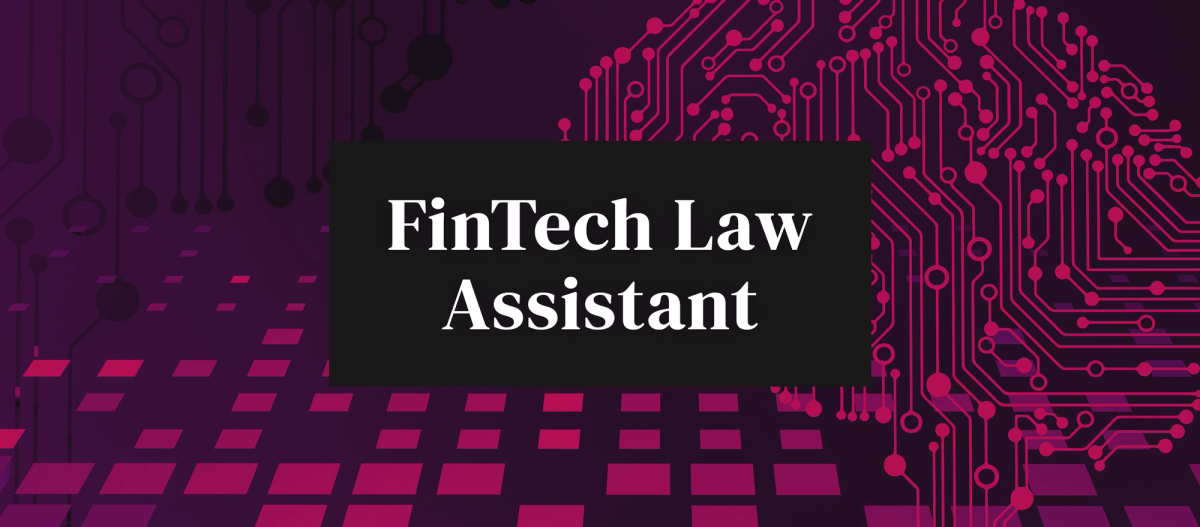Summer 2024 Newsletter
FinTech Law Quarterly Newsletter - SUMMER 2024
Dear Readers,
Welcome to the Summer 2024 edition of the FinTech Law Quarterly Newsletter. As we navigate through the dynamic and ever-evolving landscape of technology startups and financial services, it’s imperative to stay abreast of the latest developments from regulatory bodies such as the SEC and FINRA. This quarter has been particularly eventful, with significant updates and landmark actions that will undoubtedly impact our industry.
In this edition, we delve into several key events: the latest SEC Investment Adviser Statistics report, amendments to Regulation S-P, the SEC’s enforcement action against Joonko for AI whitewashing, and the ongoing litigation involving Ripple. Each topic holds critical insights for founders and company directors, and we aim to provide a concise and comprehensive overview to help you stay informed and compliant.
Investment Adviser Statistics Report: A Snapshot of the Industry
The SEC's recent release of the Investment Adviser Statistics report provides a comprehensive overview of the current state of the investment advisory industry. The report highlights several trends and key statistics that are crucial for investment advisers and their clients to understand. One of the most notable trends is the continued growth in the number of SEC-registered investment advisers (RIAs). As of the latest report, there are over 14,000 RIAs managing assets totaling approximately $110 trillion. This marks a significant increase from previous years, reflecting the growing demand for professional investment advice and portfolio management. Unfortunately, nearly all the growth was with advisers who manage more than $1 trillion. Smaller advisers, especially those with less than $100 million in AUM, had minimal gains. Thus, the advisory space continues its trend towards concentration and a lack of diversification.
The report also underscores the increasing importance of technology in the investment advisory space. More firms are adopting advanced analytics, AI, and machine learning tools to enhance their services and improve client outcomes. However, with this technological integration comes increased scrutiny from regulators, particularly concerning data security and privacy. For founders and directors of technology startups and financial services companies, these trends offer several key takeaways:
- Market Opportunities:
The continued growth in the number of RIAs and the total RAUM presents significant market opportunities for fintech solutions that cater to the needs of these advisers. - Regulatory Compliance:
The increasing concentration of assets with large advisory firms underscores the importance of robust compliance frameworks to manage regulatory risks effectively. - Client Diversification:
The diverse client base of RIAs, spanning HNWI and institutional clients, highlights the need for tailored investment solutions and advanced client relationship management tools. - Technology Integration:
The growing RAUM and the complexity of investment strategies underscore the importance of integrating advanced technologies like AI and machine learning to enhance portfolio management and compliance processes.

Updated Regulation S-P: Enhancing Data Protection
In response to the evolving landscape of data security threats, the SEC has recently updated Regulation S-P, which governs the privacy of consumer financial information and the safeguarding of personal information. These amendments aim to bolster protections against data breaches and ensure that investment advisers and financial institutions implement robust cybersecurity measures. Key changes to Regulation S-P include enhanced requirements for incident response programs, mandatory notification to affected individuals in the event of a breach, and stricter controls over the use of third-party service providers. Firms must conduct regular risk assessments and update their privacy policies accordingly. These updates for technology startups and financial services companies underscore the importance of maintaining stringent data security practices. Compliance with the new requirements helps protect client information and mitigates the risk of regulatory penalties and reputational damage.
SEC Action Against Joonko: A Case of AI Whitewashing
In a landmark enforcement action, the SEC recently charged Joonko, an AI-driven recruitment platform, with deceptive practices related to AI whitewashing. The company was found to have manipulated its algorithms to present a more favorable picture of diversity within its talent pool than was actually the case. This action highlights the increasing regulatory focus on the ethical use of AI and machine learning technologies. For founders and directors of technology companies, it serves as a stark reminder of the importance of transparency and honesty in AI applications. Misleading stakeholders through algorithmic manipulation breaches regulatory requirements and undermines trust and integrity. The Joonko case sets a precedent for future regulatory actions and emphasizes the need for robust governance frameworks to oversee AI and data analytics practices. Companies must ensure that their AI systems are designed and operated fairly, transparently, and compliant with regulatory standards.
Ripple Litigation: SEC's Setbacks and Implications for the Crypto Industry
The cryptocurrency and blockchain community have closely watched the ongoing litigation between the SEC and Ripple Labs. Recently, the SEC faced several setbacks in its case, raising questions about the regulatory approach to digital assets and the classification of cryptocurrencies. The crux of the dispute lies in whether Ripple’s XRP token should be classified as a security. The SEC’s argument has encountered resistance, with the court questioning the clarity and consistency of the regulatory framework applied to digital assets. These developments have significant implications for the broader cryptocurrency market, particularly regarding regulatory certainty and compliance requirements. The Ripple case underscores the need for proactive engagement with regulators and a thorough understanding of the legal landscape for startups and companies involved in the crypto space. Ensuring compliance with existing regulations while advocating for clearer guidelines is crucial for the industry's sustainable growth.
Conclusion
As we continue to witness rapid advancements and regulatory changes in the technology and financial services sectors, staying informed is more critical than ever. This quarter's developments—from the insights in the Investment Adviser Statistics report and the updated Regulation S-P to the significant enforcement actions and litigation—highlight the dynamic nature of our industry. At FinTech Legal, we are committed to providing you with the latest updates and expert insights to navigate these complexities. We hope this edition of our newsletter serves as a valuable resource for your business, helping you stay ahead of the curve and make informed decisions. Thank you for your continued trust in FinTech Legal. Should you have any questions or require further assistance, please do not hesitate to contact our team.
Warm regards,
Bo Howell | Founder & Principal | FinTech Law

U.S. Department of Labor Issues Final Fiduciary Rule
On April 23, 2024, the U.S. Department of Labor (DOL) issued a final rule, amending the definition of an investment advice fiduciary for purposes of the Employee Retirement Income Security Act (ERISA) and the Internal Revenue Code, as well as related amendments to prohibited transaction exemptions (PTEs) available to fiduciaries under ERISA (collectively, the Final Regulations). The Final Regulations generally take effect on September 23, 2024, with a one-year transition period for certain conditions in the PTEs. The Final Regulations broaden who qualifies as an investment advice fiduciary and are designed to align ERISA’s fiduciary protections with reasonable retirement investor expectations of trust and confidence.
SEC Settles Enforcement Proceedings Against Five Advisers for Alleged Marketing Rule Violations
On April 12, 2024, the SEC announced the settlement of administrative proceedings brought against five registered investment advisers for alleged violations of Rule 206(4)-1 under the Investment Advisers Act of 1940, known as the Marketing Rule. Among other things, the Marketing Rule prohibits advisers from using hypothetical performance information in advertising material unless they have adopted and implemented policies and procedures to ensure that the information is relevant to the likely financial situation and investment objectives of the advertisement’s intended audience. Hypothetical performance information includes the performance of model portfolios and backtested performance returns derived from applying a strategy to historical data from periods when the strategy was not actually employed.
SEC Settles Enforcement Proceedings Against Adviser for Improperly Splitting Legal Fees with Mutual Fund Client
On April 29, 2024, the SEC announced the settlement of administrative proceedings brought against a registered investment adviser for alleged violations of Section 17(d) of the Investment Company Act of 1940, Rule 17d-1 thereunder, and Section 206(2) of the Investment Advisers Act of 1940 related to an impermissible joint legal fee arrangement with its mutual fund client.
SEC Settles Enforcement Proceedings Against Adviser Regarding Alleged “Pay-to-Play” Political Contribution
On April 15, 2024, the SEC announced the settlement of administrative proceedings brought against a registered investment adviser for alleged violations of Section 206(4) of the Investment Advisers Act of 1940 and Rule 206(4)-5 thereunder, known as the “pay-to-play” rule, concerning a political campaign contribution. The “pay-to-play” rule prohibits registered investment advisers from providing investment advisory services for compensation to a government entity within two years after the adviser or its covered associate makes a contribution to an official of the government entity, including a candidate for office.
Welcome to the Team

Yi-Ying Yu
Yi-Ying is an experienced lawyer specializing in cross-border M&A, private equity/venture capital, startups/emerging companies, and corporate governance. Fluent in English and Mandarin, she brings expertise in US and Asia-Pacific markets. She holds an LL.M. from UC Berkeley and is licensed in California and Taiwan.

Tatiana Filippova
Tatiana, a seasoned legal professional with 20+ years in financial services and banking, specializes in investment management. She provided corporate governance support to boards and committees, navigated regulatory examinations, and offered expert guidance on litigation and transactions. Tatiana holds a law degree from St. John's University, is licensed in New York, and is an active member of the Institute of International Bankers.

Introducing the FinTech Law Assistant
Your AI powered Guide to Securities Law
The FinTech Law Assistant, powered by ChatGPT, changes how professionals navigate federal securities law's complexities. Available 24/7, it offers instant answers and comprehensive coverage on topics ranging from RIA to RIC transitions and startup queries.
This AI tool ensures seamless legal guidance at your fingertips, making securities regulations more accessible and manageable for everyone in the FinTech space.
Book Consultation
Need help understanding how to ensure compliance and transparency in your Fintech company?
Contact us today for a consultation.




